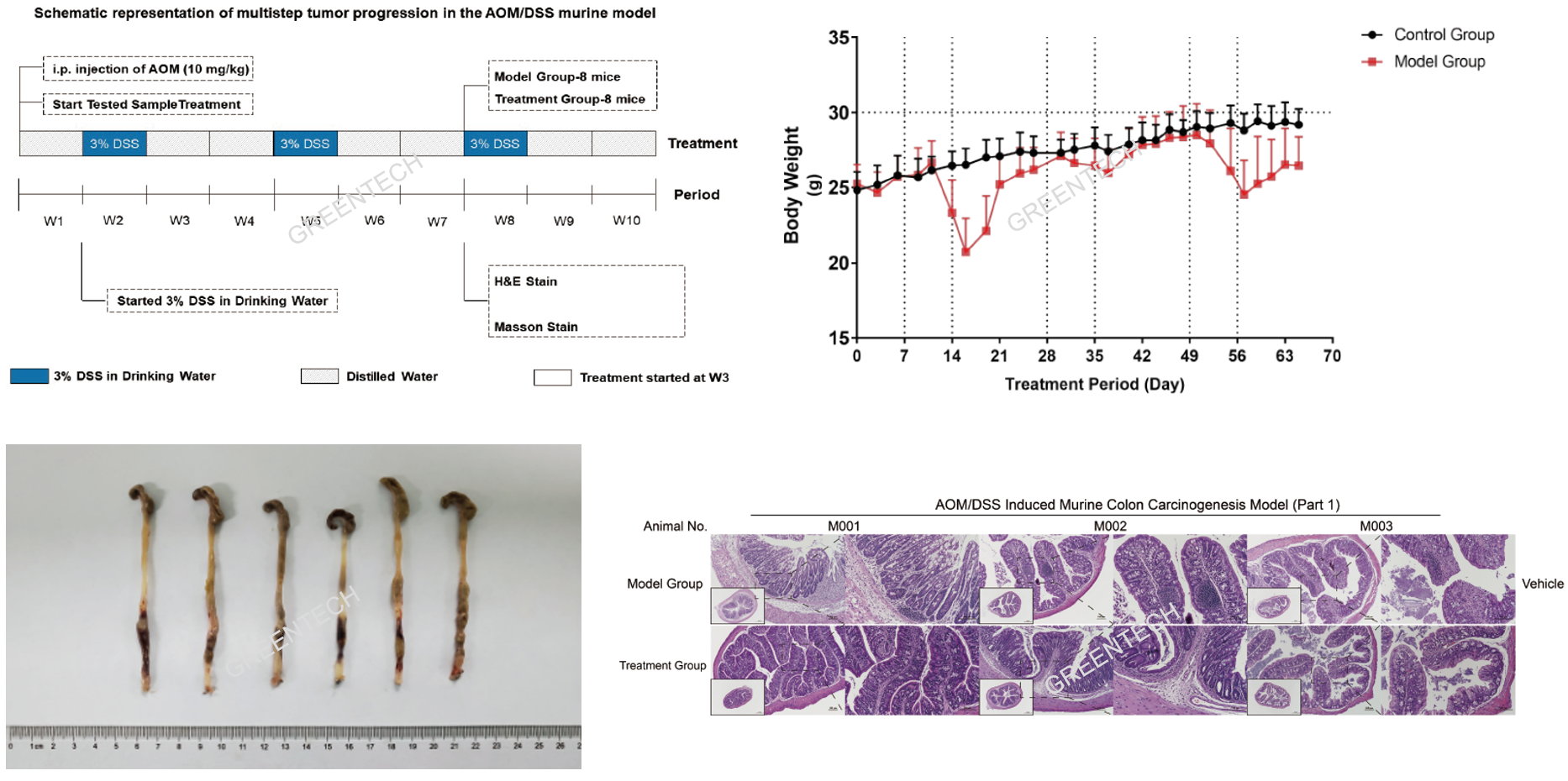Chemically Induced Tumor Models
Greentech Bioscience offers validated chemically induced tumor models such as Diethylnitrosamine (DEN) induced mouse liver cancer model and AOM/DSS induced colorectal cancer (CRC) mouse model. We can also customize animal models according to clients’ needs.
Our Chemically Induced Tumor Model
1. DEN Induced Mouse Liver Cancer Model
DEN can cause severe liver damage, and even liver cancer. DEN has become a highly attractive chemical carcinogen for inducing liver tumorigenesis in mice as an experimental model of human primary hepatocarcinogenesis.
Animals: 2-week old male C57BL/6 mice
Induction: pre-cancerous lesions appeared at about 24 weeks after intraperitoneal injection of 25 mg/kg DEN, and liver cancer developed at 42 weeks
Clinical Assessment
(1) Clinical observations, body weight
(2) Tumor volume and size
(3) Biochemical analysis: ALT, AST, ALB, etc.
(4) Histopathology: H&E, Masson staining
2. AOM/DSS Mouse Model of Colorectal Cancer
The azoxymethane-dextran sulphate-sodium (AOM/DSS) model is generally accepted as an ideal mouse model to study the carcinogenesis mechanisms of colitis-associated CRC. The AOM/DSS induced colorectal cancer model is robust and reproducible, and has become one of the most frequently used models to study inflammation-associated colorectal carcinogenesis in rodents and evaluate antitumor and antifibrotic effects of therapies on CRC.
Animals: 4-week old male C57BL/6 mice
Induction: a single intraperitoneal injection of AOM (10 mg/kg body weight) and administration of three 7-day cycles of 3% (w/v) DSS in drinking water
Clinical Assessment
(1) Clinical observations, body weight
(2) Tumor count, aberrant crypt foci (ACF) count
(3) Histopathology: H&E staining
Case Study
AOM/DSS model of colorectal cancer

Inquiries
Request a quote now, or email us at BD@greentech-bio.com to inquire about our services or obtain a quote for your project.
Reference
Lin R, Piao M, Y Song, et al. Quercetin Suppresses AOM/DSS-Induced Colon Carcinogenesis through Its Anti-Inflammation Effects in Mice[J]. Journal of Immunology Research, 2020, 2020(7):1-10.











